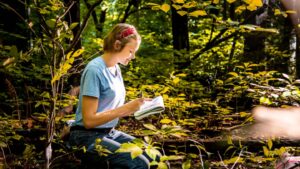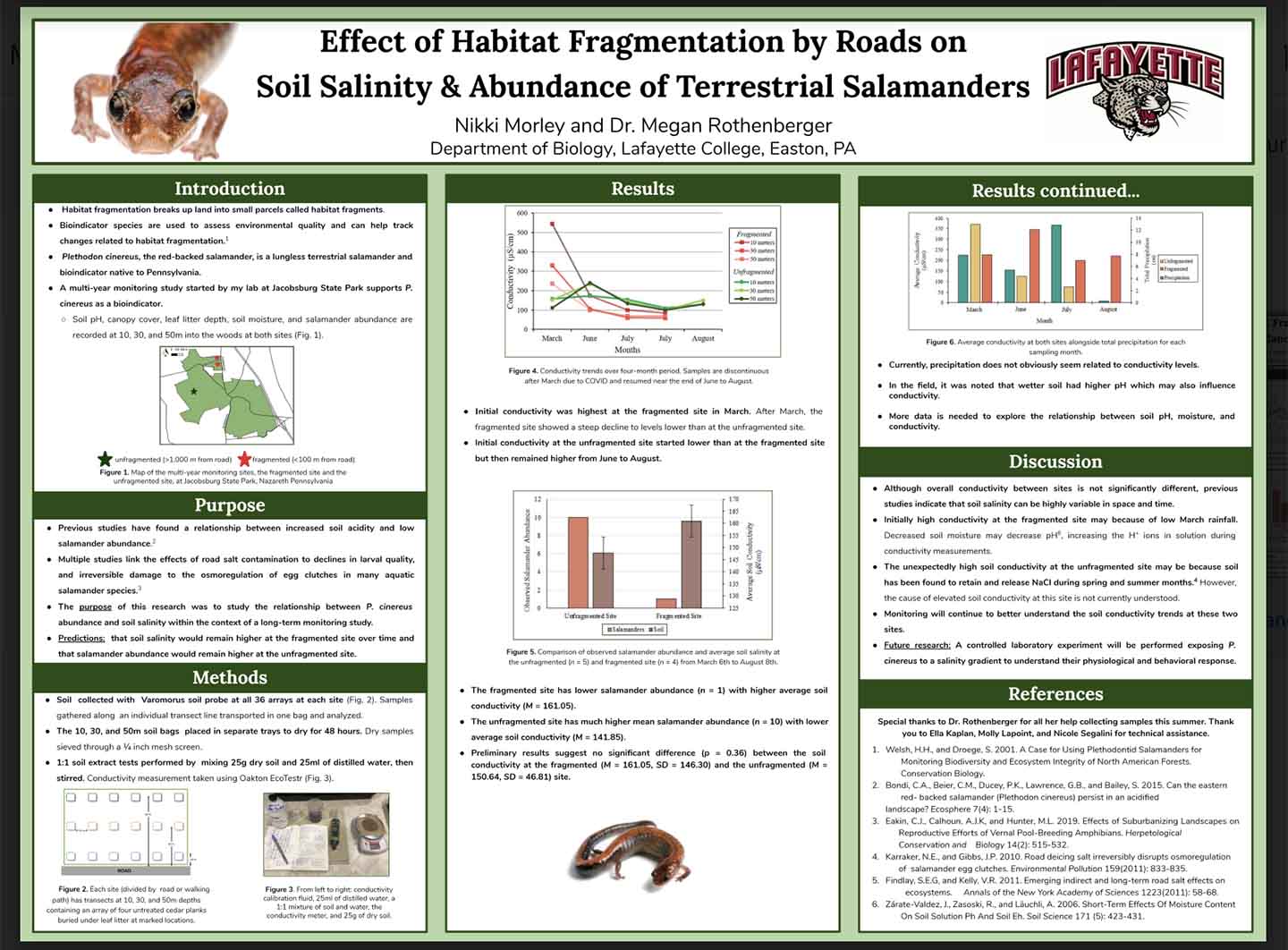Notice of Online Archive
This page is no longer being updated and remains online for informational and historical purposes only. The information is accurate as of the last page update.
For questions about page contents, contact the Communications Division.
Biology student researches how pollution impacts local wildlife
Student researcher: Nikki Morley ’21
Major: Animal science
Adviser: Megan Rothenberger, associate professor of biology and environmental science

Nikki Morley (Photo by Bill Stank of PhotoSynthesis Photography)
What my research is about:
“Habitat fragmentation is the process of breaking land into small parcels, which occurs by human activity, such as the building of roads. This allows pollution further into forests, changing conditions and making the habitat unfavorable for the species that live there. One way to evaluate this change is to evaluate bioindicator species, which can be used to estimate the condition of cohabitating species. If the bioindicator isn’t doing well, it’s a sign that other species aren’t either. The red-backed salamander is a bioindicator native to Pennsylvania with two unique qualities that make it sensitive to ground-level change. They’re lungless, so they breathe through their skin and the moisture in the soil. They’re also terrestrial, living their entire life in the soil. My lab has been studying this species at Jacobsburg State Park since 2014, and we’ve found significantly lower salamander abundance and more acidic soil at the fragmented site. I believe this is due to soil salinity resulting from road salt pollution. This research is important because it could help widen the field of knowledge on terrestrial salamanders and inform environmental management plans on forest quality.”

What surprised me the most:
“While sampling from June through August, the soil salinity at the unfragmented site (nowhere near a road) stayed higher than that at the fragmented site. I don’t exactly know why this is yet; I suspect there may be an interaction between soil moisture, pH, and conductivity.”
Why this experience is valuable:
“I’ve been working in Prof. Rothenberger’s lab since my junior year, and this is the first time I’m leading a project. It’s helped me understand how a lab dynamic should work, and it’s given me confidence in my own abilities. Now, I can’t picture my future without a career that involves research and fieldwork.”


8 Comments
Very proud of you. Now I have a better understanding of your purpose for our trips to Jacobsburg State Park. What an accomplishment. Great job!
Wow, that’s fantastic stuff right there! I just learned some really good things and am so happy you are researching this important matter. Keep on keeping on Nikki Morley ♥️
Amazing work. Thank you for keeping wildlife protected from us. Very important since as You indicated. It the circle ⭕️ of life.
What a great article! I really enjoyed the poster session and having an opportunity to hear about this innovative work that your doing Nikki!
I found Nikki’s research well
prepared, fascinating and thought provoking. It is wonderful to see a student realize their academic goals in the process.
Very proud of your research skills!
Fantastic, Nikki!
Awesome! Hard work pays off.
Comments are closed.